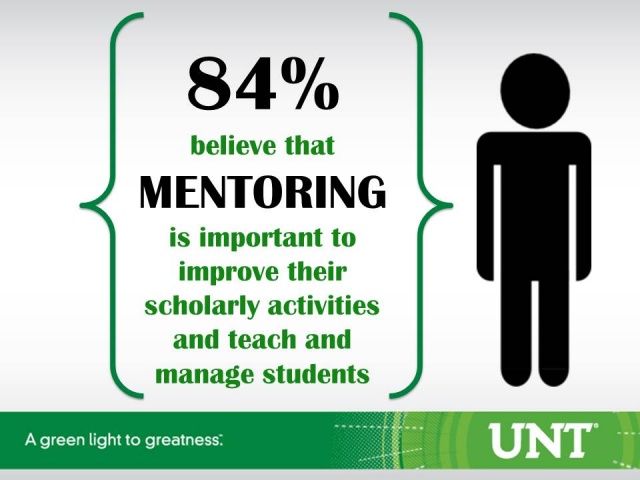
Some results for mentoring reflect change in the culture at UNT and across the country, both in academia and in society as a whole. Most faculty members indicate mentoring is important or very important to help them improve their teaching and research efforts, as well as to navigate their department and the university. However, males believe mentoring is less important in all five areas (how things are done, how to get along, managing teaching and students, improving research/scholarship and moving to leadership) than do females and full professors think it is less important in four areas. More males and assistant professors had been assigned mentors. Fewer than half of the African Americans either chose their mentor or had faculty offer to mentor them, in contrast to the other groups which had a higher proportion for both questions. More than 75% of Asian American and lecturer faculty were satisfied with the mentoring they receive at UNT compared to half to two-thirds of the other groups.
